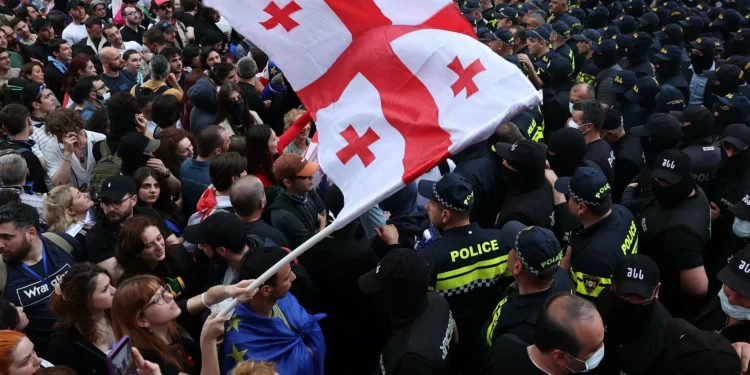A group of Georgian non-governmental organizations (NGOs) have taken a bold step to defend the rights of civil society by challenging the controversial “foreign agent” law in the country’s constitutional court. This move has been welcomed by citizens and activists as a major step towards protecting the freedom of expression and association in Georgia.
According to local media reports, the coalition of NGOs have filed a lawsuit against the law which requires any organization receiving foreign funding to register as a “foreign agent” and report their activities to the government. This law has been widely criticized by human rights groups as a means of suppressing dissent and restricting the work of independent organizations.
The decision to take the law to the constitutional court is a result of months of advocacy and consultations among civil society groups who have been deeply concerned about the impact of the law on their work. The coalition of NGOs includes prominent organizations such as Transparency International Georgia, Georgian Young Lawyers’ Association, and the Human Rights Education and Monitoring Center, among others.
In a joint statement, the NGOs affirmed that the law violates the fundamental rights and freedoms guaranteed by the Georgian constitution. They argue that the law’s vague definition of “foreign agent” and the wide discretion given to the government to decide which organizations fall under this category, undermines the principle of equality before the law and is open to abuse.
The “foreign agent” law has been a source of controversy since it was introduced in 2017. Despite the government’s claims that it is necessary to prevent foreign interference in Georgian affairs, it has been widely condemned as a tool to stifle civil society and silence dissenting voices. Many have also raised concerns about the law’s potential impact on the country’s democratic development and its international credibility.
The coalition of NGOs is determined to challenge the law on the grounds that it violates the right to freedom of association and expression. They argue that the law creates a hostile environment for civil society, which is essential for promoting civic engagement, transparency, and accountability.
The move to take the law to the constitutional court has received widespread support from the public. Many see it as a crucial step towards upholding the values of democracy and protecting the rights of citizens to participate in public life without fear of repression or intimidation.
The Georgian government has also faced pressure from international human rights organizations to amend or repeal the law. In its 2020 report, the U.S. Department of State raised concerns about the “foreign agent” law, stating that it has “created a chilling effect on the non-governmental sector.” The European Union also issued a statement expressing its worries over the law’s potential impact on the independence and diversity of civil society in Georgia.
The legal challenge against the “foreign agent” law is a significant development in Georgia’s ongoing struggle for democracy and human rights. It reflects the determination of civil society to stand up for their rights and hold the government accountable for its actions.
Moreover, the decision to take the law to the constitutional court demonstrates the strength and resilience of Georgian civil society. Despite facing challenges and restrictions, NGOs have continued to play a vital role in promoting transparency, defending human rights, and advocating for the rule of law in the country.
The success of this legal challenge will not only have implications for the civil society sector but also for the overall human rights situation in Georgia. It will send a strong message to the government that the international community and the people of Georgia will not tolerate any attempts to suppress civil society and undermine democratic values.
In conclusion, the decision of Georgian NGOs to challenge the “foreign agent” law in the constitutional court is a significant step towards safeguarding the rights and freedoms of citizens. It is a testament to the resilience and determination of civil society to protect the democratic principles on which the country is built. We can only hope that the court will uphold these values and strike down the law, paving the way for a more open, transparent, and democratic society in Georgia.



